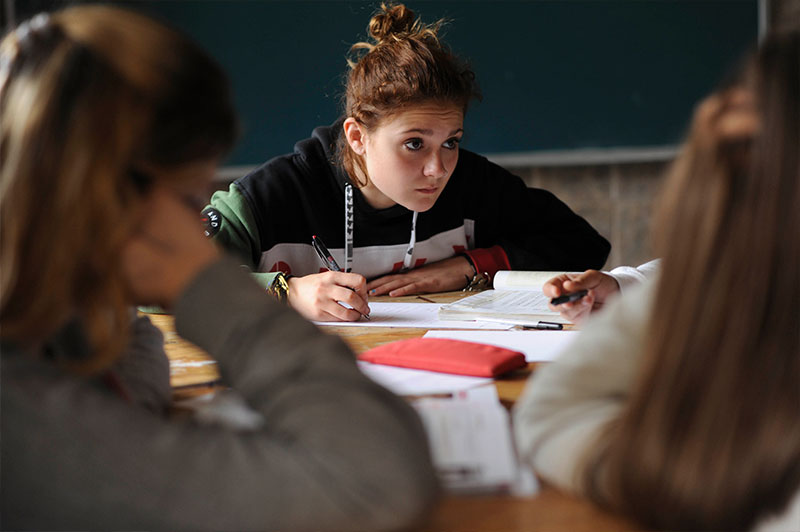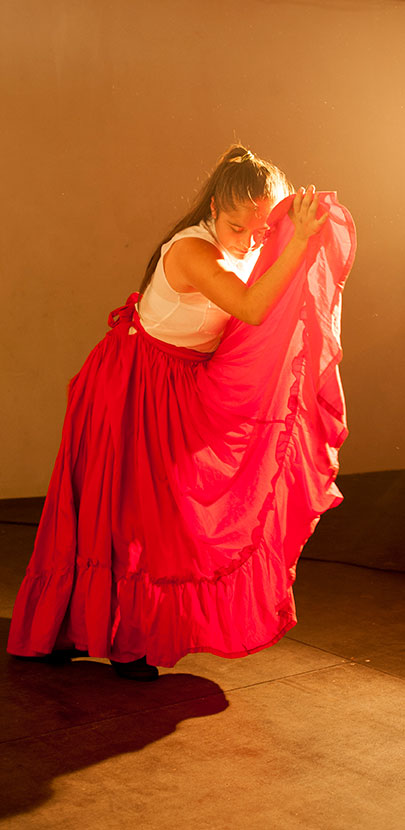Todos los chicos y las chicas que llegan a la Casa-Escuela deben conocer y cumplir un Reglamento que existe. Las líneas básicas son las siguientes:
1. Los jóvenes que van a vivir en la Casa Escuela Santiago deben cumplir los horarios y las normas expuestas a principio de curso, así como aceptar las variaciones que se hagan en la Asamblea o por decisión del equipo de educadores.
2. En casos de delitos como robos, droga, violencia, etc., se procede como dicte la ley correspondiente. No somos cómplices de daños o perjuicios que se cometan contra otras personas. Por otro lado, si alguno o alguna de los que viven en la Casa Escuela tienen esos problemas no se les abandona en ningún momento. Se les acompaña en los procesos que sean necesarios. Los educandos tienen que aprender las consecuencias de sus actos, pero eso no debe afectar al cariño que se les entrega ya que también deben tener la seguridad que se les quiere sin condiciones, tal y como son. Se les ayuda a no perder la confianza y la esperanza en sí mismos.

3. Aquí el problema de uno o una es problema de todos. Cuando algo se dice en la intimidad se debe respetar. Los rumores se sanean en la Asamblea donde se puede hablar de todo. Son difíciles los secretos y se pretende que cada uno o cada una sea capaz de afrontar su vida.
4. Tienen que cumplir con las tareas encomendadas. Hay que acostumbrarse a ser responsables en los estudios, en el trabajo, en las labores de casa para ser autónomos, etc. Hay que hacer la cama todos los días por la mañana, la limpieza, poner la mesa y meter las cosas en el lavavajillas la semana que toque y, una vez a la semana, hacer a fondo la limpieza.
5. Si el chico o la chica no hacen la cama o tienen la habitación desordenada, lo hará una persona encargada de la limpieza y cobrará un dinero. Las cosas tienen que estar bien hechas y si son vagos para hacerlas tendrán que pagar como hacen los señoritos.

6. Para aprender a vivir bien y dignamente, aunque no tengan mucho dinero, tienen que cuidar la casa donde viven y, lo poco o mucho que tengan, compartirlo. Tendrán más de lo necesario y lo suficiente para una formación muy buena si lo cuidan. Para eso todos saben que lo que rompen tienen que pagarlo.
7. Es necesaria la puntualidad. Supone una forma de respeto hacia el grupo. No hacerlo trae consecuencia. Por ejemplo: si se llega tarde al estudio éste se recupera con más tiempo; si es a la comida, se queda uno sin hacerlas; si llegan tarde en el fin de semana no se sale al siguiente,…
8. Las actividades son para todos. Si algo piensan que es bueno se ofrece a todos. Suele haber la posibilidad de elegir entre varias alternativas, abarcar diversos intereses, pero lo que no se permite es no hacer nada. Se tiene en cuenta la opinión expuesta en las Asambleas excepto las no argumentadas. Decide o convence el que más sabe de cada cosa o el que mejor la sabe expresar.
9. Todos tienen que cumplir horarios de clase o trabajo, lectura, estudio y talleres. No se puede estar en la Casa haciendo otra cosa. Los invitados también se deben incorporar al programa de la institución. De lo contrario, tienen que irse.
10. La dimensión espiritual es fundamental. Deben participar de los encuentros que la comunidad cristiana realiza en la misa de los domingos. No hay que comulgar con la Fe, pero se comparte un tiempo de reflexión y vivencias que ayudan a todos. También se hace con la comunidad musulmana que se reúne para leer el Corán, celebrar el Ramadán u otras fiestas.
11. Para valorar las ventajas que ofrece asociarse, organizan cursos, talleres, fiestas, acampadas, viajes, etc. se ofrecen a gente de fuera, por las que se cobra una cantidad simbólica para que se den cuenta los chicos y las chicas del valor de las oportunidades y de lo que puede conseguirse haciendo las cosas bien. La fuerza nace de la unión y no de ir cada uno por su cuenta. Pueden hacer la mejor escuela ún procediendo de familias con escasos recursos económicos. Es tan buena que interesa a todos, desde familias acomodadas hasta universitarios. Creamos la Asociación para que se pueda pertenecer a ella aunque no se viva en la Casa. No queremos estar marginados ni excluidos de lo que pasa en el mundo por ser jóvenes.
12. Pretenden una “explotación cultural” para compensar el poco tiempo dedicado a la buena formación de muchos de los que llegan. Están dispuestos a ser una “escuela universitaria” que compita con las grandes instituciones en calidad educativa y captación de intereses y necesidades sociales.
13. Los mayores de 18 años pueden estar durante un periodo negociado de búsqueda de empleo activa y rigurosa, o con una estabilidad en estudios o trabajo.

